- Browse
- Docker
Results for "docker"
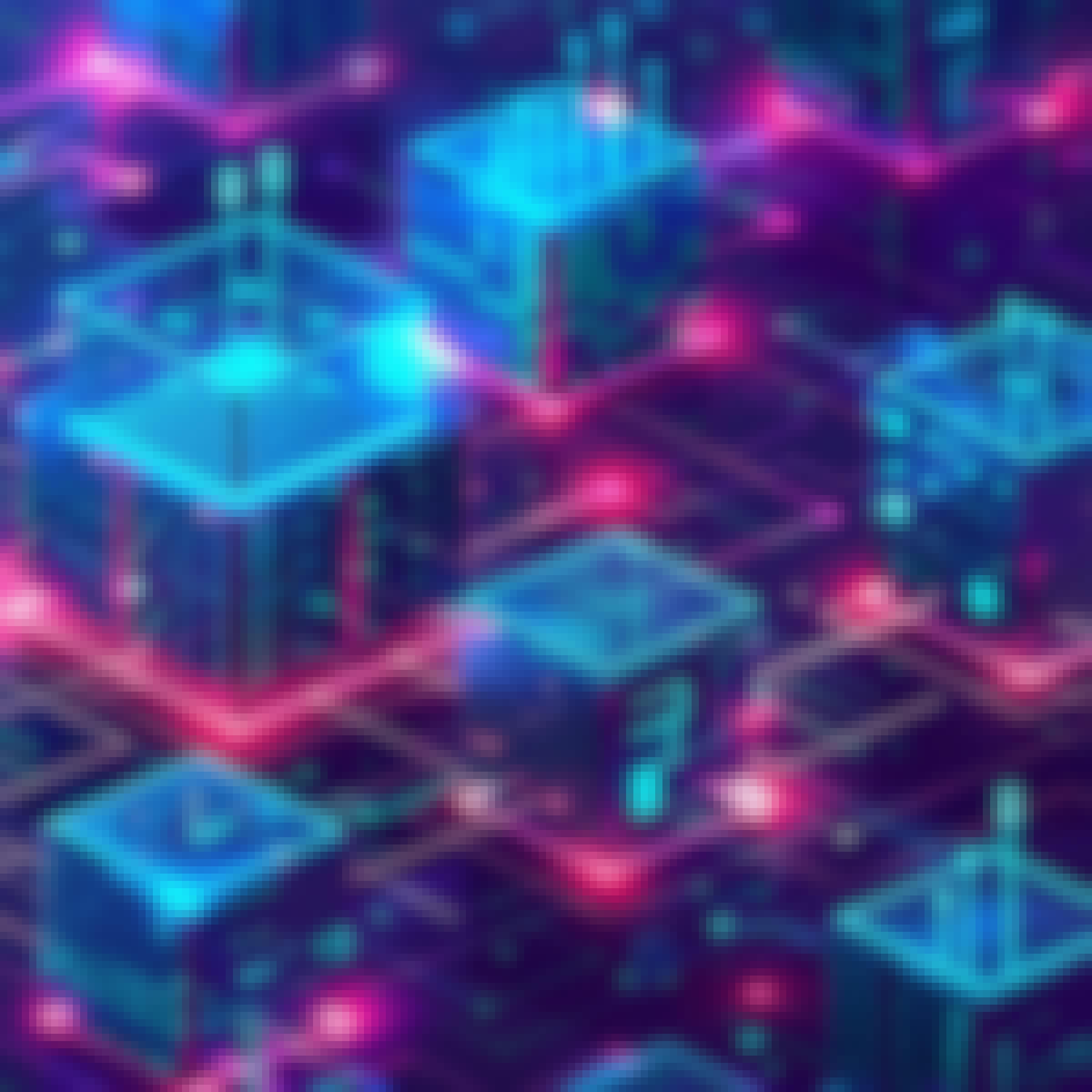 Status: Free TrialFree Trial
Status: Free TrialFree TrialSkills you'll gain: Istio, Kubernetes, Cloud-Native Computing, Containerization, OpenShift, Docker (Software), CI/CD, DevOps, Application Deployment, Command-Line Interface, Scalability, Microservices, YAML
4.4·Rating, 4.4 out of 5 stars1K reviewsIntermediate · Course · 1 - 3 Months
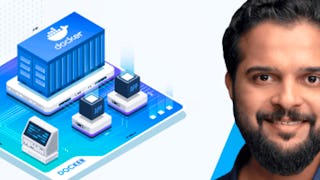 Status: PreviewPreviewK
Status: PreviewPreviewKKodeKloud
Skills you'll gain: Docker (Software), Containerization, Kubernetes, Linux Commands, CI/CD, DevOps, YAML, Command-Line Interface, Data Storage, Computer Networking
4.6·Rating, 4.6 out of 5 stars153 reviewsBeginner · Course · 1 - 3 Months
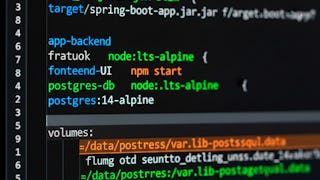 Status: NewNewStatus: Free TrialFree Trial
Status: NewNewStatus: Free TrialFree TrialSkills you'll gain: Docker (Software), Containerization, Application Deployment, DevOps, Microservices, Cloud Deployment, Data Persistence, Software Architecture, Spring Boot, MySQL, WordPress
Beginner · Course · 1 - 4 Weeks
 Status: Free TrialFree Trial
Status: Free TrialFree TrialSkills you'll gain: Kubernetes, Docker (Software), Containerization, Cloud-Native Computing, Application Deployment, YAML, Devops Tools, Command-Line Interface, Google Cloud Platform, Web Applications, Cloud Deployment, Data Persistence, Development Environment, Configuration Management, Virtual Networking, Nginx, CI/CD, MongoDB, Service Management, Infrastructure Security
4.7·Rating, 4.7 out of 5 stars28 reviewsIntermediate · Specialization · 3 - 6 Months
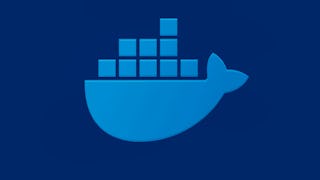 Status: Free TrialFree TrialL
Status: Free TrialFree TrialLLearnKartS
Skills you'll gain: Containerization, Microservices, Virtualization, Scalability, Application Lifecycle Management, Command-Line Interface
3.7·Rating, 3.7 out of 5 stars82 reviewsBeginner · Specialization · 1 - 3 Months
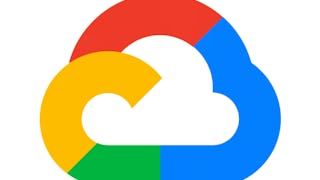 G
GGoogle Cloud
Skills you'll gain: Docker (Software), Containerization, Google Cloud Platform, Devops Tools, DevOps, Web Development
4.3·Rating, 4.3 out of 5 stars95 reviewsBeginner · Project · Less Than 2 Hours
What brings you to Coursera today?
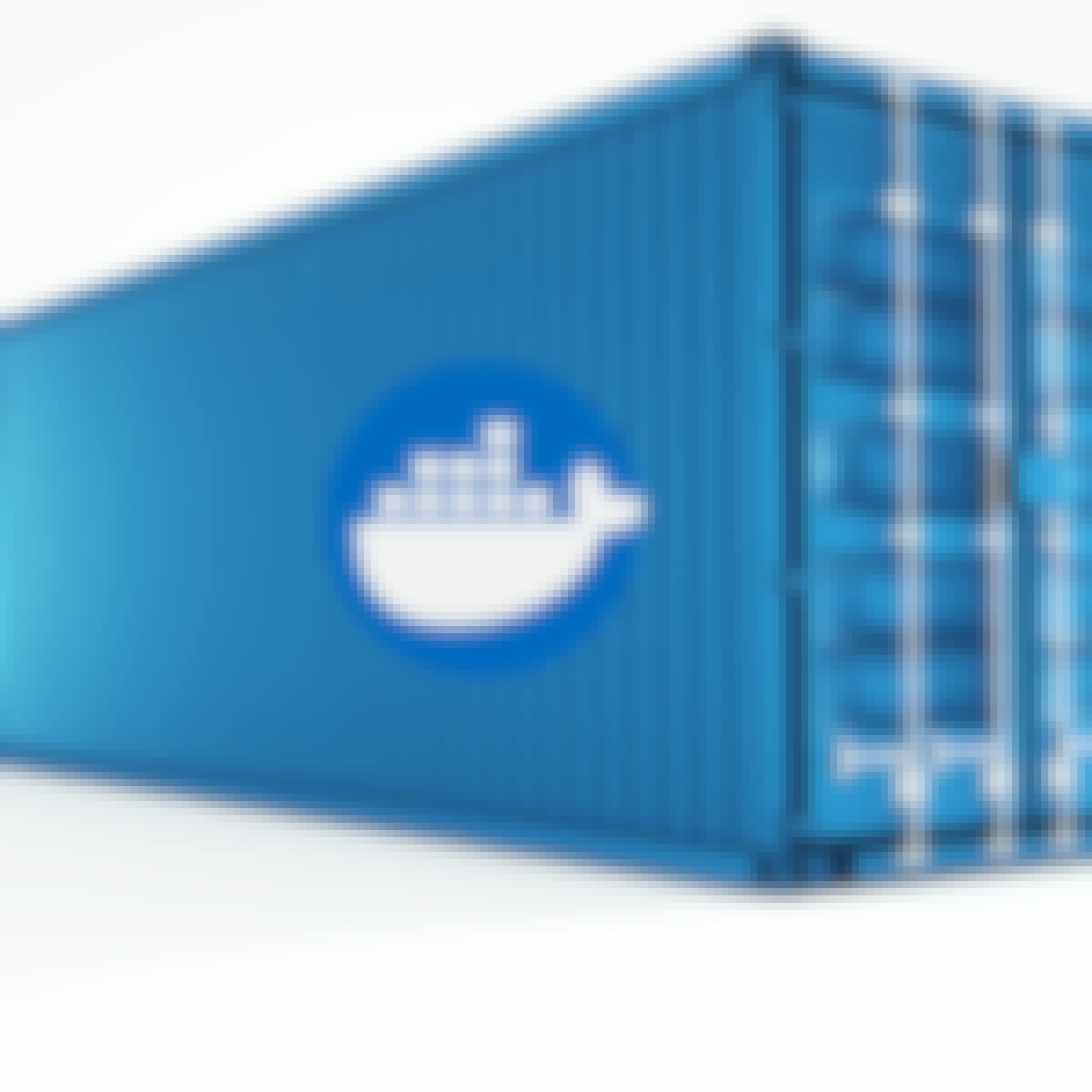 Status: Free TrialFree TrialL
Status: Free TrialFree TrialLLearnKartS
Skills you'll gain: Docker (Software), Cloud-Native Computing, Containerization, DevOps, Microservices, Linux Administration, Software Architecture, CI/CD, Application Deployment, Virtualization
3.8·Rating, 3.8 out of 5 stars62 reviewsBeginner · Course · 1 - 4 Weeks
 Status: Free TrialFree TrialStatus: AI skillsAI skills
Status: Free TrialFree TrialStatus: AI skillsAI skillsSkills you'll gain: User Story, Cloud Deployment, CI/CD, Software Development Life Cycle, Open Web Application Security Project (OWASP), Continuous Integration, Istio, Linux Commands, Software Architecture, Cloud Computing Architecture, Application Deployment, Test Driven Development (TDD), Kubernetes, Restful API, Git (Version Control System), DevOps, Grafana, Software Engineering, Data Import/Export, Application Development
Build toward a degree
4.6·Rating, 4.6 out of 5 stars65K reviewsBeginner · Professional Certificate · 3 - 6 Months
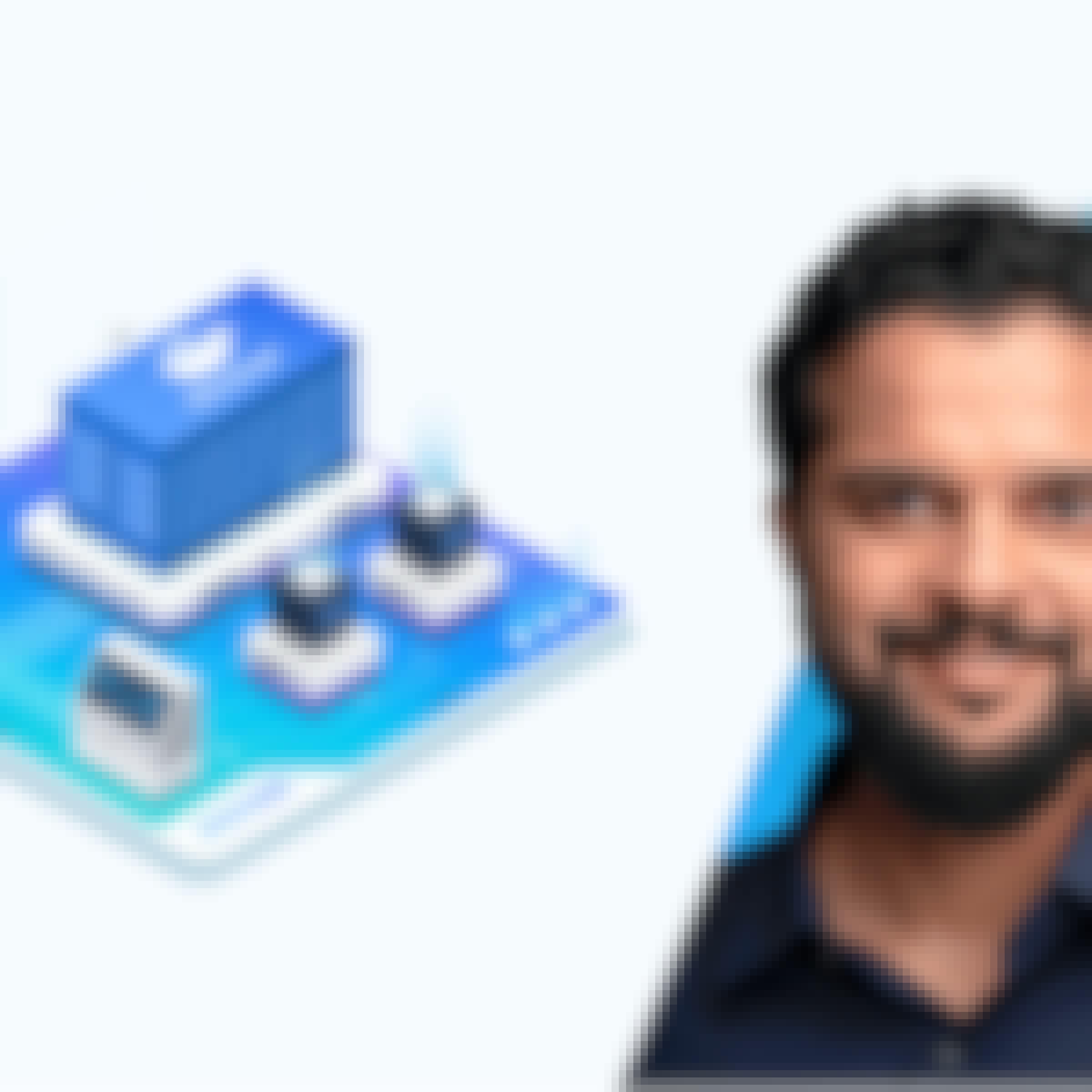 Status: Free TrialFree TrialK
Status: Free TrialFree TrialKKodeKloud
Skills you'll gain: Docker (Software), Containerization, DevOps, Linux Commands, Cloud-Native Computing, Command-Line Interface, Virtual Networking, Data Storage, Software Installation
4.7·Rating, 4.7 out of 5 stars42 reviewsBeginner · Course · 1 - 3 Months
 Status: Free TrialFree TrialStatus: AI skillsAI skills
Status: Free TrialFree TrialStatus: AI skillsAI skillsSkills you'll gain: Prompt Engineering, Large Language Modeling, Cloud Deployment, Software Development Life Cycle, CI/CD, Cloud-Native Computing, Istio, Software Architecture, Node.JS, React Redux, Cloud Computing Architecture, Restful API, Responsive Web Design, Django (Web Framework), Git (Version Control System), HTML and CSS, Server Side, Cloud Computing, Data Import/Export, Engineering Software
Build toward a degree
4.6·Rating, 4.6 out of 5 stars60K reviewsBeginner · Professional Certificate · 3 - 6 Months
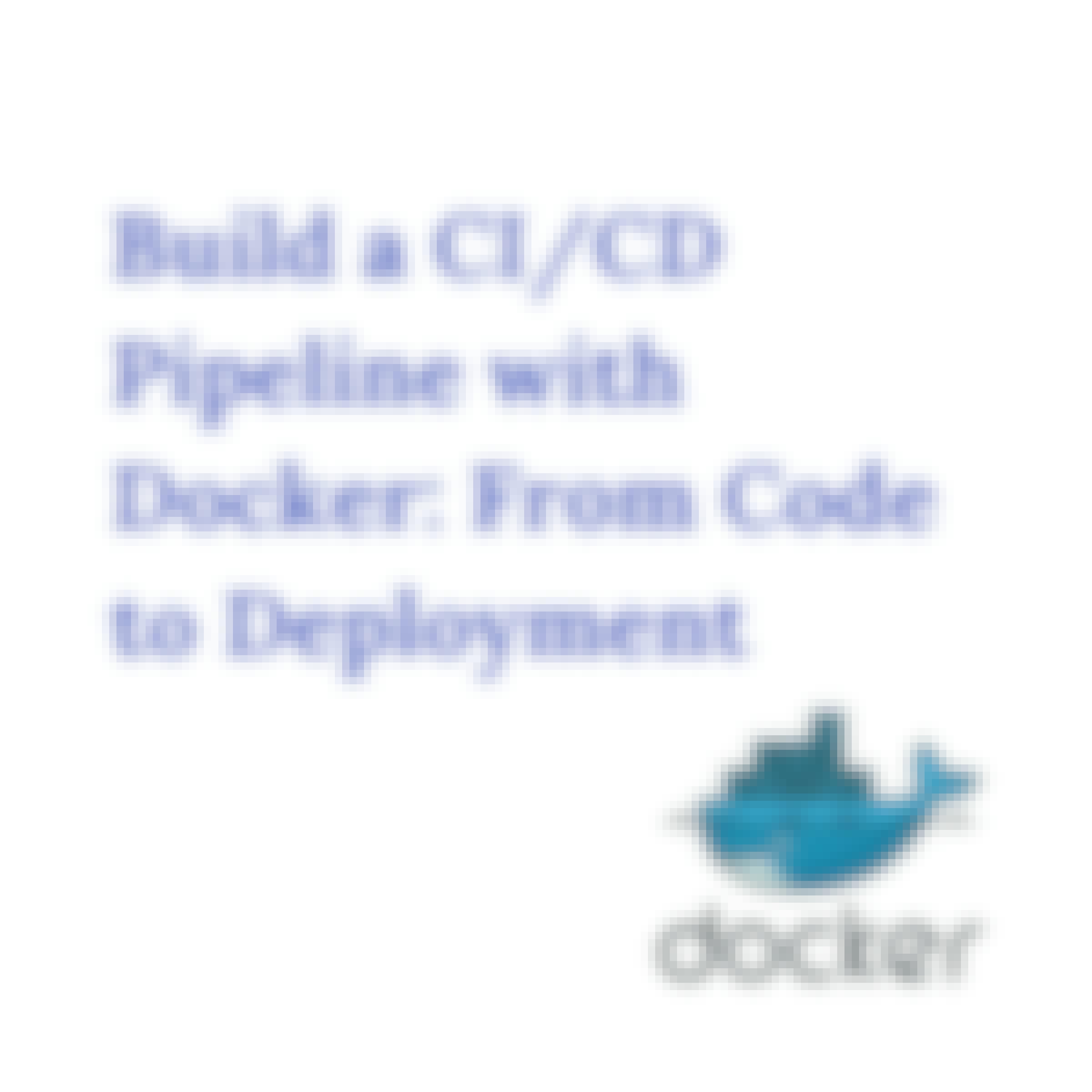 Status: FreeFree
Status: FreeFreeSkills you'll gain: Docker (Software), CI/CD, Cloud Deployment, Application Deployment, Amazon Elastic Compute Cloud, DevOps, Containerization, Cloud Hosting, Spring Boot, Continuous Deployment, Amazon Web Services, Continuous Integration, GitHub
4·Rating, 4 out of 5 stars6 reviewsIntermediate · Guided Project · Less Than 2 Hours
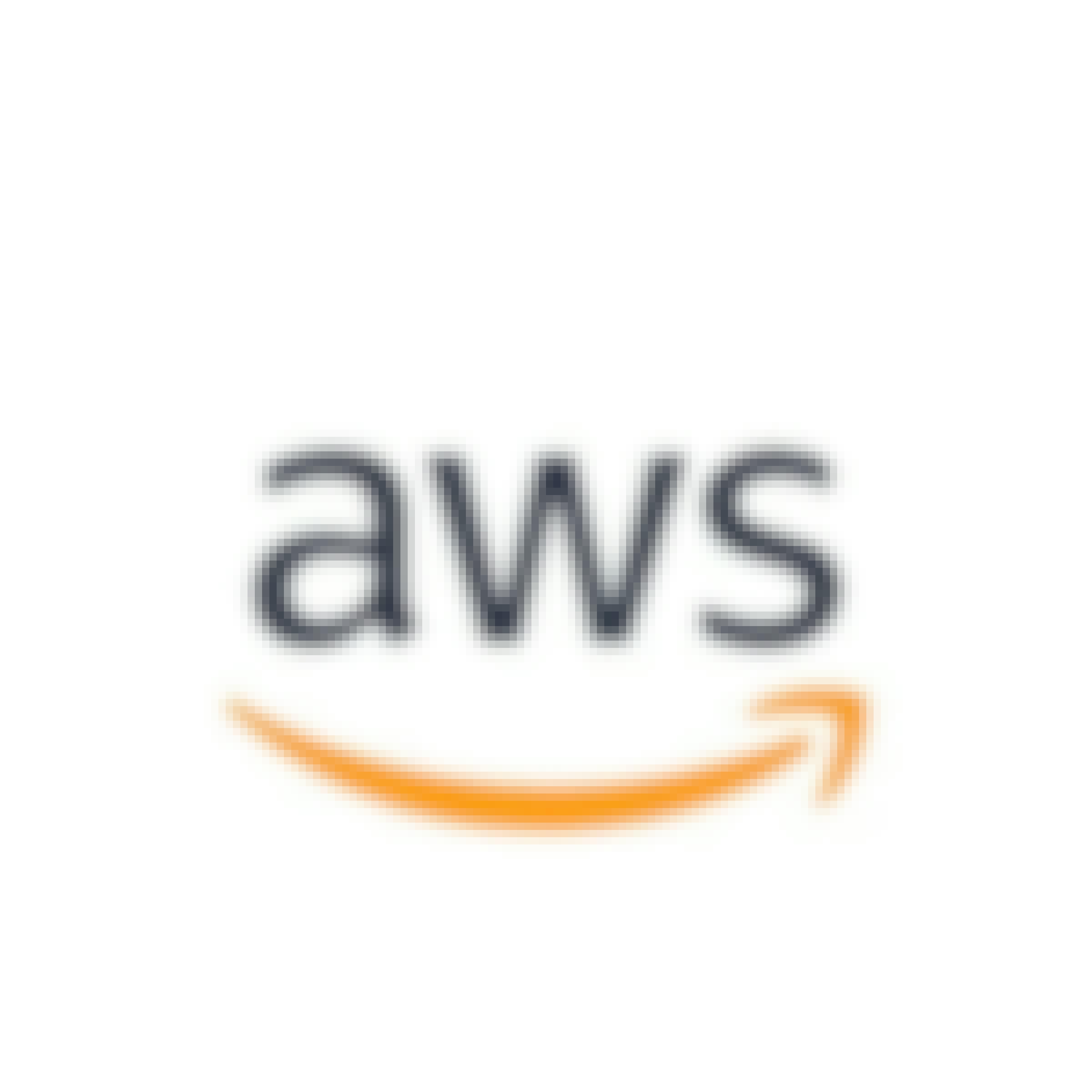 Status: NewNewStatus: FreeFreeA
Status: NewNewStatus: FreeFreeAAmazon Web Services
Skills you'll gain: Containerization, Docker (Software), Application Deployment, Development Environment, Virtualization
Beginner · Course · 1 - 4 Weeks
In summary, here are 10 of our most popular docker courses
- Introduction to Containers w/ Docker, Kubernetes & OpenShift: IBM
- Docker for Beginners with Hands-on labs: KodeKloud
- Deploy Applications with Docker: Build Real-World Projects: EDUCBA
- Docker and Kubernetes Masterclass: From Beginner to Advanced: Packt
- Docker Certified Associate Exam Prep: LearnKartS
- Introduction to Docker: Google Cloud
- Docker Fundamentals: LearnKartS
- IBM DevOps and Software Engineering: IBM
- Docker Basics for DevOps: KodeKloud
- IBM Full Stack Software Developer: IBM
Frequently Asked Questions about Docker
Docker is an open-source platform that automates the deployment, scaling, and management of applications within lightweight containers. These containers package an application and its dependencies together, ensuring that it runs consistently across different computing environments. Docker is important because it simplifies the development process, enhances collaboration among teams, and improves resource efficiency. By using containers, developers can focus on writing code without worrying about the underlying infrastructure, leading to faster deployment and more reliable applications.
With skills in Docker, you can pursue various job roles in the tech industry. Common positions include DevOps Engineer, Software Developer, Cloud Engineer, and Systems Administrator. These roles often require a solid understanding of containerization and orchestration technologies, as companies increasingly adopt microservices architectures. Additionally, Docker skills can enhance your employability in roles focused on cloud computing, application development, and IT operations, as organizations seek professionals who can streamline their deployment processes.
To effectively learn Docker, you should focus on several key skills. First, understanding the fundamentals of containerization is crucial, including how to create, manage, and deploy containers. Familiarity with Docker commands and the Docker CLI is also important. Additionally, knowledge of orchestration tools like Kubernetes can enhance your capabilities. Learning about networking, storage, and security within Docker environments will further solidify your expertise. Finally, practical experience through hands-on projects will help reinforce your learning and build confidence.
There are several excellent online courses available for learning Docker. For beginners, the Docker for Beginners with Hands-on labs course provides a solid introduction. If you're looking to advance your skills, the Docker Certified Associate (DCA) Specialization offers a comprehensive curriculum. Additionally, the Docker and Kubernetes Masterclass: From Beginner to Advanced Specialization is ideal for those wanting to explore both technologies in depth.
Yes. You can start learning docker on Coursera for free in two ways:
- Preview the first module of many docker courses at no cost. This includes video lessons, readings, graded assignments, and Coursera Coach (where available).
- Start a 7-day free trial for Specializations or Coursera Plus. This gives you full access to all course content across eligible programs within the timeframe of your trial.
If you want to keep learning, earn a certificate in docker, or unlock full course access after the preview or trial, you can upgrade or apply for financial aid.
To learn Docker effectively, start by exploring beginner-friendly courses that introduce the core concepts and functionalities. Engage in hands-on practice by setting up Docker on your local machine and experimenting with creating and managing containers. Utilize online resources, such as tutorials and documentation, to deepen your understanding. Joining community forums or groups can also provide support and insights from other learners. As you progress, consider taking more advanced courses to refine your skills and tackle complex projects.
Typical topics covered in Docker courses include the basics of containerization, how to install Docker, creating and managing containers, and understanding Docker images. Courses often explore into networking and storage options, as well as best practices for deploying applications in containers. Additionally, many courses explore orchestration tools like Kubernetes, which are essential for managing containerized applications at scale. Security practices and troubleshooting techniques are also commonly addressed to prepare learners for real-world scenarios.
For training and upskilling employees in Docker, the Docker Certified Associate (DCA) Specialization is highly recommended. This specialization provides a structured learning path that covers essential Docker concepts and practices. Additionally, the Docker Basics for DevOps course is beneficial for teams looking to integrate Docker into their DevOps workflows. These courses are designed to equip employees with the skills needed to enhance productivity and streamline application deployment.










